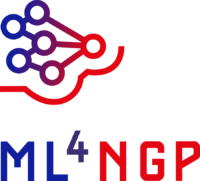
Call
COST ACTION
No.CA21160
Starting date
25 October 2022
24 October 2026
UniPD funding
€629.813,15
Role
Chair
Role
Grant Holder
ML4NGP
Non-globular proteins in the era of Machine Learning
Abstract
Protein structure prediction has long been considered the “Holy Grail” of structural biology. The recent success of AlphaFold has ushered in a new era of highly accurate structure prediction, bringing to light the secrets hidden in the three-dimensional structures of globular proteins, increasing our understanding about their structural features and molecular function. However, a large proportion of the proteomes from all domains of life are rich in sequences that do not fold into regular structures, commonly known as nonglobular proteins (NGPs). NGPs comprise intrinsically disordered regions, repeats, low-complexity sequences, aggregation-prone and phase-separating sequences, and are implicated in a range of agerelated diseases. Their heterogeneous structural states and low sequence complexity challenge current experimental structure determination techniques and machine learning (ML) methods for structure prediction, making the molecular understanding of their sequence-structure-dynamics-function relationship difficult. The recent improvements of ML approaches and advances in determining NGP structural ensembles call for a timely re-assessment of the interplay between experiments and computation. The ML4NGP Action aims to establish an interdisciplinary pan-European network to favour this interplay, fostering experimental frameworks designed to provide information to computational methods, and novel computational methods developed, trained and benchmarked with experimental data. ML4NGP will enhance the primary experimental data generation (WG1), promote integrative structural biology approaches (WG2), benchmark the state-of-the-art ML methods (WG3) and improve the functional characterization of NGPs (WG4). The Action will support its scientific objectives through policies that sustain free knowledge exchange, inclusiveness and training of young researchers who will lead future innovations in this field.

Funded by the European Union, HORIZON-MSCA-2023-SE-01 under Grant Agreement 101182949. Views and opinions expressed are however those of the author(s) only and do not necessarily reflect those of the European Union or the European Research Executive Agency (REA). Neither the European Union nor the granting authority can be held responsible for them.

Funded by the European Union, HORIZON-MSCA-2023-SE-01 under Grant Agreement 101182949. Views and opinions expressed are however those of the author(s) only and do not necessarily reflect those of the European Union or the European Research Executive Agency (REA). Neither the European Union nor the granting authority can be held responsible for them.

